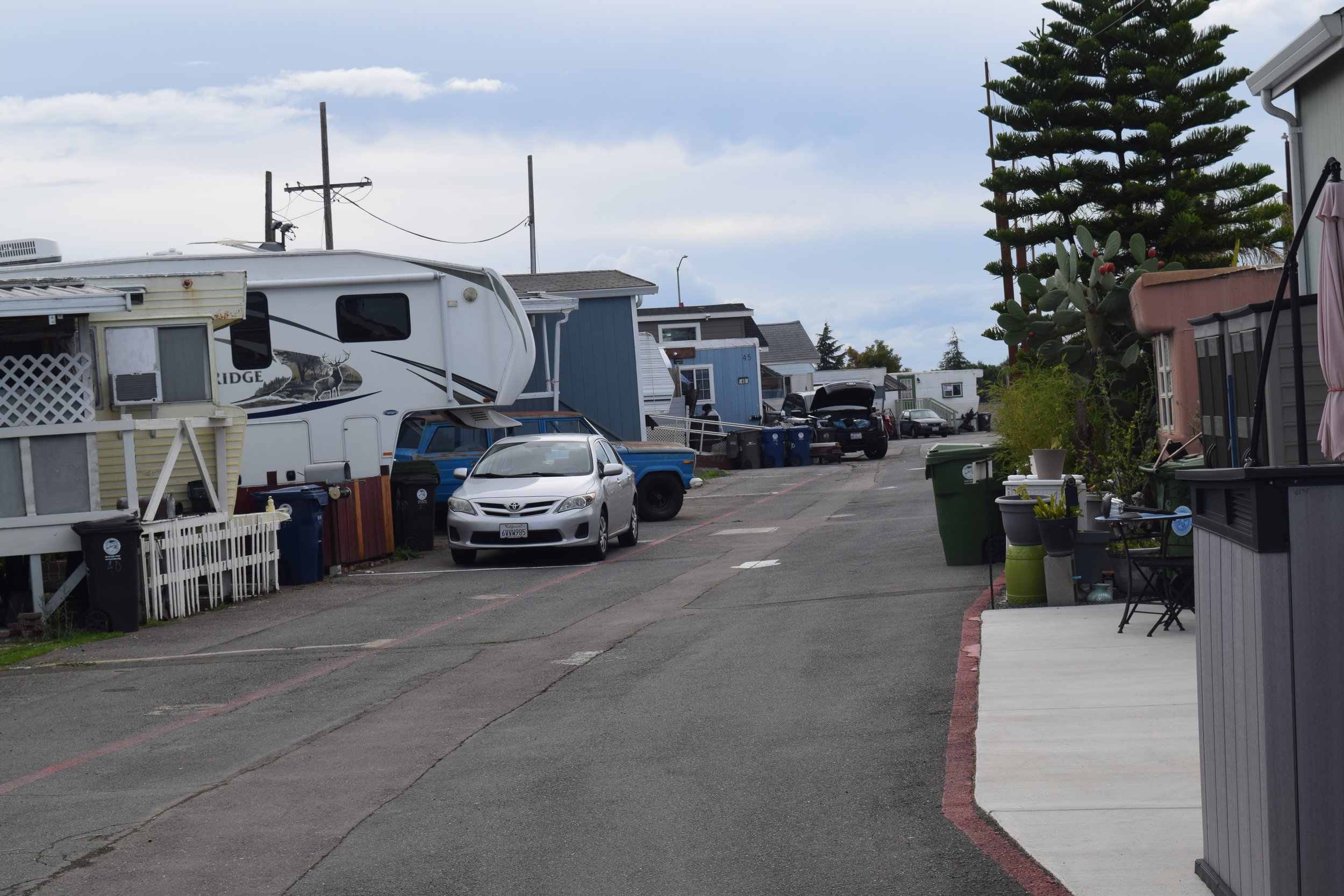Eviction Notices Sent to Some Mobile Home Park Renters
The owners of Avalon Mobile Home Park in Castro Valley are moving to evict some, but not all, of the residents that rent units there. The park’s residents who own the units they live in are facing big rent hikes effective February 1.
Neither the rent hikes nor the evictions are legal, according to officials at the Alameda County Community Development Agency (CDA), which is helping residents contest the owners’ notices.
In the past few weeks, letters have gone out to several residents at the 3970 Castro Valley Boulevard mobile home park telling them they have to be out within 120 days, according to Elinda Null-Bonora, a tenant who got one on December 19.
The letters are not, however, the legal forms used to begin legal eviction proceedings, leaving out required information, according to a neighbor who showed them to both county officials and to an attorney.
“We think they’re trying to put timelines on us to create this sense of urgency, rather than follow the somewhat slower legal eviction process,” said Tara Clancy, who owns her unit and whose mother owns a separate unit at Avalon. “Even if that was legal, which it isn’t,” she added.
“They want people to panic and leave rather than use the protections they have,” Clancy said.
Nick Draper of the CDA said that two different laws protect mobile home residents who own their units and those who rent them from park owners. A county ordinance, first passed in 1990, protects owners both from big rent increases and evictions, while a more recent state law protects mobile home tenants from both, just as if they lived in a rented apartment or house.
He said that people facing similar situations in the unincorporated areas should call CDA at (510) 670-6417 or e-mail them atHCDAdmin@acgov.org. Cities may have their own set of protections, he said.
Avalon was bought from the former family owners by the nationwide real estate firm Three Pillars Communities in early 2023.
It has 49 units, most of which are owned by the residents but sit on land owned by Three Pillars. Thus, the resident is paying rent for the land while separately covering financing of the unit itself.
Some 11 units, however, are owned by the mobile home park and rented by residents. Several of those are vacant, according to Clancy. Several tenants got evictions notices, but others did not.
“We noticed that the letters only went out to people paying lower rents, not those who moved in more recently and are paying higher rents,” she said.
Attempts to reach Three Pillars for comment were unsuccessful.
Clancy noted that the eviction letters quoted parts of the state’s Ellis Act, which lets a property owner evict tenants if they are getting out of the rental business altogether, which Three Pillars claimed in their letter. However, not all renters in the park got the letter, and the letters did not mention the Ellis Act provision that renters can buy their units instead of leaving, she said.
Clancy and Null-Bonora both thought the owners were trying to move out everybody and put up distinctly unaffordable housing there, regardless of what the law or local government might say.
Clancy said the owners were willing to disobey laws and ignore legal orders and might indeed eventually get rid of everybody at Avalon.
“But we’re going to fight and slow them down. Hopefully a lot,” she said.
Null-Bonora said that the situation was ironic, given that her family had driven past the park when they first moved to Castro Valley in 1964. A little girl at the time, she had exclaimed “I’d never live in a place like that.”
Today, not only does she live there, but she lives in one of the very same units that hadn’t appealed to her almost 60 years ago.
“Even if they did offer to sell it to me, I’m not sure how much they’d think they could get,” she said. “But they haven’t.”
The park’s residents, with the support of county housing officials, have been urging the county board of supervisors to tighten up the mobile home ordinance to remove any possible ambiguity in its protections.
The Avalon residents are looking to band together with residents of other mobile home parks throughout Alameda County’s unincorporated areas to fight similar issues elsewhere as well.
They are urging people to attend a mobile home teach-in at the Castro Valley Library being held by the My Eden Voice organization on Saturday, January 13th at 2:30 p.m. Those wishing to attend are asked to RSVP to either leo@myedenvoice.org or maria@myedenvoice.org by January 11.

